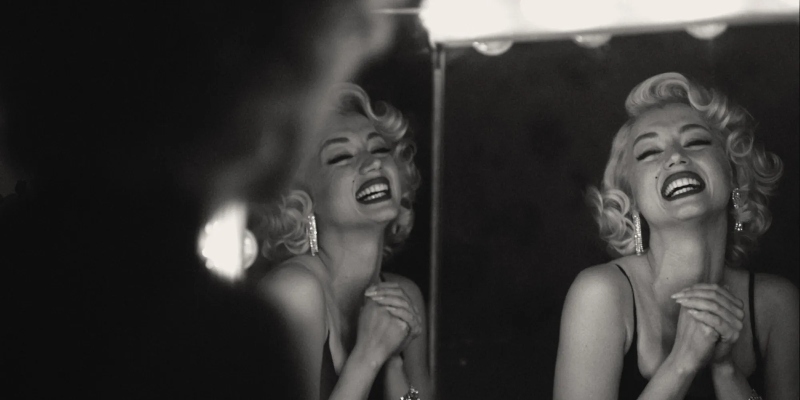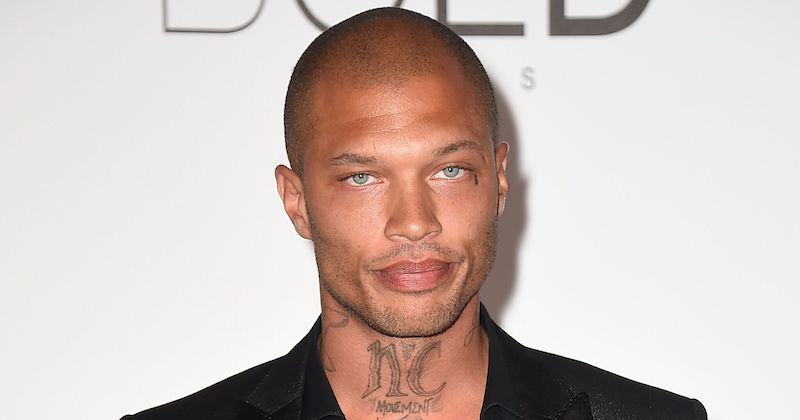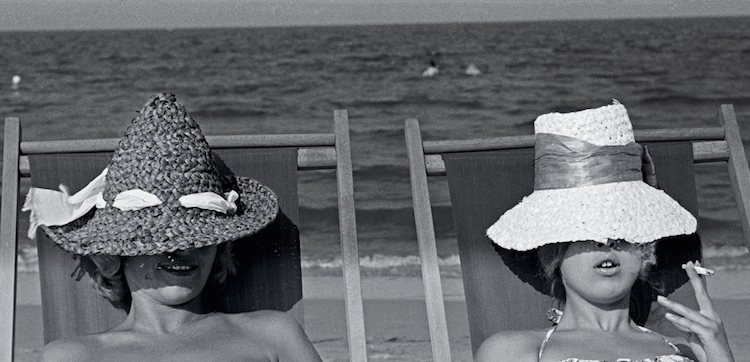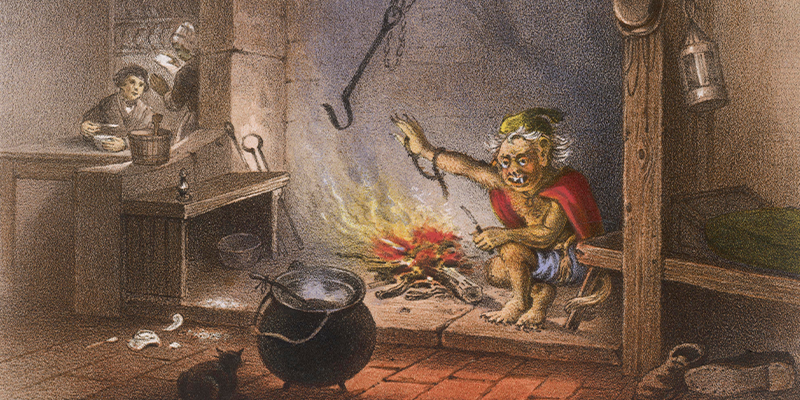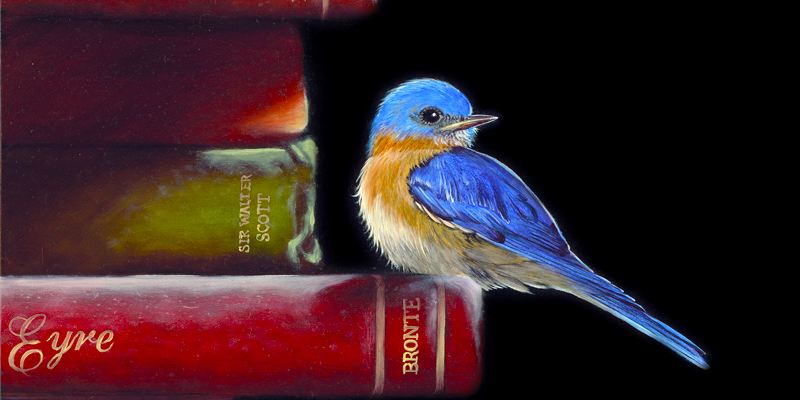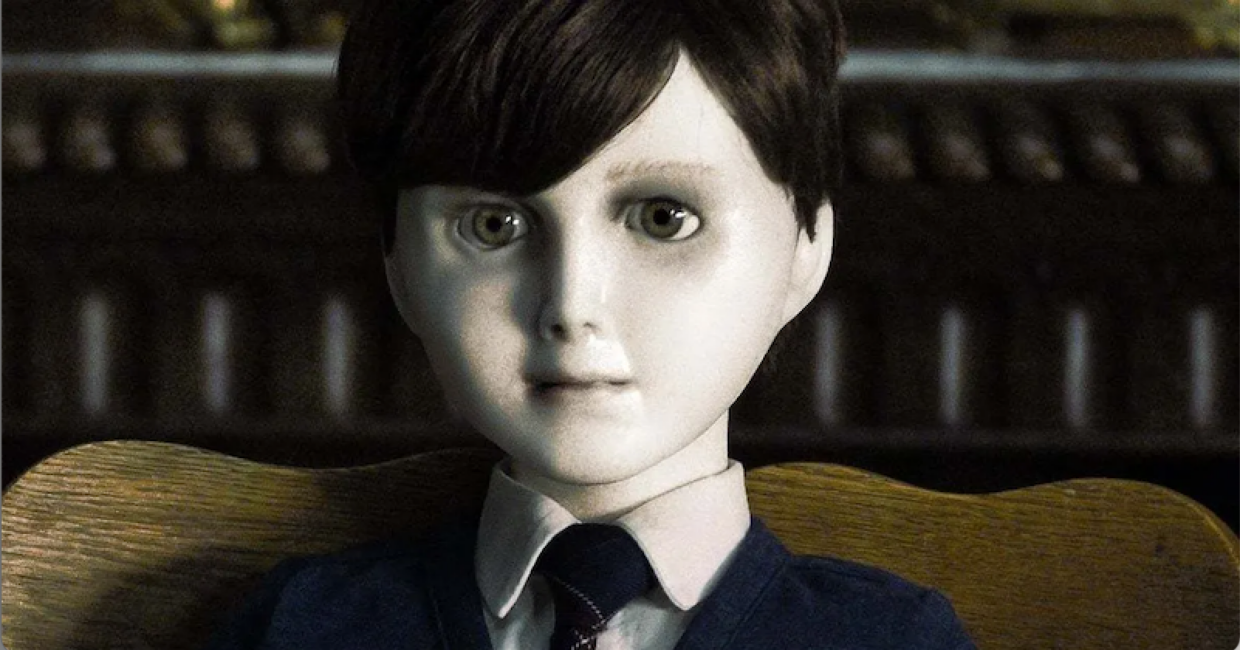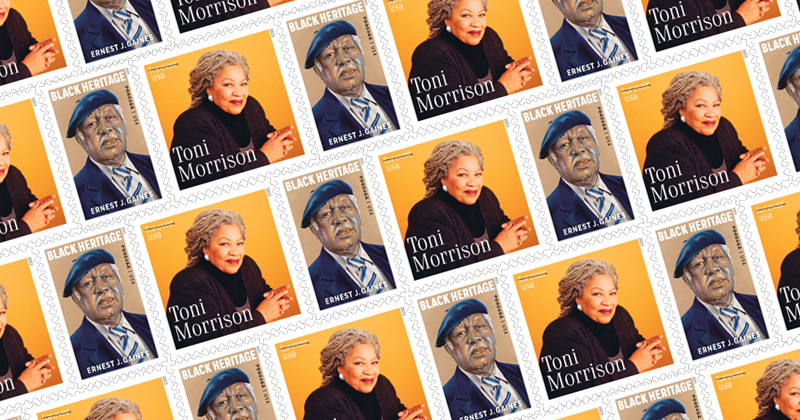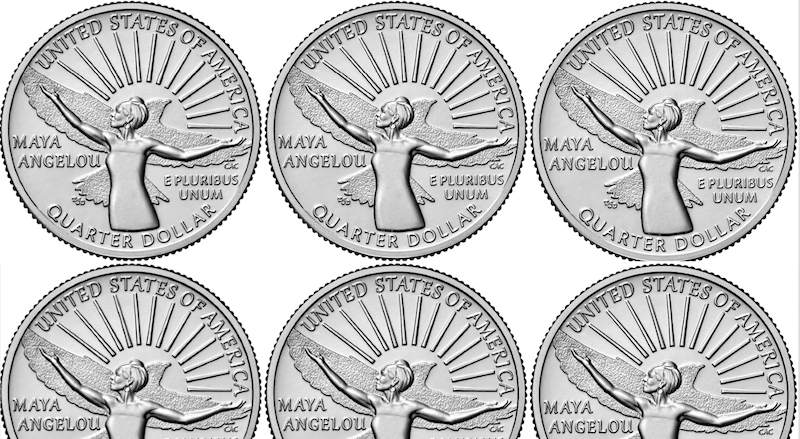It was the best of times, it was the worst of times… All right, it was mostly still the worst of times. Looks like we’re stuck in the dark timeline, guys. Sorry about that. Still, things happened this year, and some of them happened to books, or book people, or book Twitter (RIP?).
For the sake of posterity, and probably because we’re masochists, starting today, we’ll be counting down the 50 biggest literary stories of the year, so you can remember the good, the bad, and all the literary non-hotties we met along the way. Join us:
50.
Nancy Pelosi united Twitter (against Nancy Pelosi) with the poetry of Bono.
Sneaking into the top 50 is this surreal springtime episode.
Three weeks after the Russian invasion of Ukraine, House speaker Nancy Pelosi marked St. Patrick’s Day at the annual Friends of Ireland lunch in Washington DC by reading a poem by her Irish friend. . .Bono. . . in which the shy and retiring U2 frontman compares the legend of Ireland’s patron saint banishing snakes from the country to Ukraine president Volodymyr Zelenskyy’s efforts to drive Russian soldiers out of his country.
As Lit Hub’s own Jessie Gaynor so ably put it: “Nancy Pelosi reading a poem by Bono about Ukraine’ is a very special kind of cringe word salad, and a number of people credited the announcement as the moment of their radicalization/Republicanization/straight up death.”
Even for someone with Pelosi’s impressive track record of cringe behavior, this was a particularly bizarre and excruciating couple of minutes. Still, whatever gets the kids interested in poetry/Riverdance/the war/Ireland/Whacking Day, I suppose.
Here is the poem in its glorious entirety:
Oh, St Patrick he drove out the snakes
With his prayers but that’s not all it takes
For the snake symbolizes
An evil that rises
And hides in your heart, as it breaks
And the evil has risen my friends
From the darkness that lives in some men
But in sorrow and fear
That’s when saints can appear
To drive out those old snakes once again
And they struggle for us to be free
From the psycho in this human family
Ireland’s sorrow and pain
Is now the Ukraine
And St Patrick’s name now Zelenskiy
–Dan Sheehan, Book Marks editor
49.
Literary Hotties were pitted against Literary Non-hotties.
You could perhaps be forgiven for missing this particularly ridiculous literary Twitter brouhaha, which lasted for about 48 hours back at the end of September. With Blonde—the Ana de Armas-starring movie adaptation of Joyce Carol Oates’ 2000 novel—causing a stir on the festival circuit for its bleak, hyper-sexualized portrayal of Marilyn Monroe, the memoirist and professor Terese Marie Mailhot tweeted this “exquisitely bad take” on JCO and MM. Immediately, and for a couple of days afterwards, it was like Christmas morning in the writer’s wing of twitter.com.
People gleefully discussed the nature (and responsibility) of the literary non-hottie, defended the hotness of young JCO, accused present day JCO of misogyny, accused Mailhot of even more misogyny, and just generally had a grand old time savoring this wonderful new phrase. As the quote- and sub-tweets rolled in, Mailhot went on the offensive and attempted to clarify her position, which went about as well as it usually does.
As to which writers are hot enough to write about real life hotties, well, here at Lit Hub we’ve been dividing contemporary authors in “Hottie” and “Non-Hottie” categories for years. The internal document, which contains over 400 names and which we’ll be publishing in early 2023, will serve as a vital resource for the comely and homely alike. –DS
48.
The handsomest arrested man in the world signed a book deal.
Remember Jeremy Meeks, aka “Prison Bae”? Sure you do.
The former Crip and current fashion model became a viral sensation back in 2014 when the Stockton Police Department posted his extremely handsome mugshot on Facebook. Within 24 hours Meeks’ photo had acquired more than 15,000 “likes” and 3,700 comments, mostly (as Meeks’ Wikipedia entry drily puts it) “from women enamored with his looks.”
On February 5, 2015, Meeks (who, along with three other men, had been arrested in a multi-agency law enforcement mission dubbed “Operation Ceasefire”) was convicted of one count of being a felon in possession of a firearm, and sentenced to 27 months in federal prison. Less than a month later, Meeks signed his first major modeling contract and, upon being released from prison in March of 2016, never looked back.
2017 saw Meeks make his American (New York Fashion Week) and European (Milan Fashion Week) runaway debuts, in 2018 he was part of Tommy Hilfiger’s Spring fashion show in Milan, and, in 2019, Frankfurt-based fashion company Fashion Concept GmbH announced a $15 million partnership with Meeks to build a fashion line in his name.
A tale of triumph over extreme adversity, Meeks’ untitled memoir (which is set to be published by Kingston Imperial in 2023) will chronicle his early days as a member of the South Side Crips, his time in and out of prison, and the racism and prejudice he was forced to endure on his journey to stardom. –DS
47.
Elena Ferrante definitely did not die.
In August, an Argentinian publishing house announced on Twitter that Elena Ferrante, the author of My Brilliant Friend, had died “suddenly” in Rome. Multiple sources picked it up, including The Independent. Millions, or probably just hundreds, of people saw it and mourned.
But obviously, it was Tommaso De Benedetti! Come on, guys. “As far as I know, she’s fine,” Ferrante’s American publisher apparently told Alex Shephard. Lol.
46.
The internet discovered Ottessa Moshfegh’s Depop page.
Why do we care that one of America’s preeminent (risk-taking? publicity-canny?) novelists is selling a bunch of random stuff on the Internet? Whatever your opinion of Lapvona or My Year of Rest and Relaxation or the genuinely weird McGlue, Ottessa Moshfegh has a strange genius for getting people to talk about her.
To wit, this past June, Vogue ran a feature on Moshfegh’s use of online fashion marketplace Depop to sell some of her vast and weird collection of vintage bags/dresses/shirts/jewelry/tchotkes. Apparently,
…selling vintage helped Moshfegh move to LA. “It’s how I saved up to relocate after I finished my MFA,” she says, “When I moved I was still broke, but I got back to collecting.” Years later, she’s still selling, but with a different necessity: she has totally filled her house with vintage clothes. It started during the pandemic. Moshfegh wasn’t going out anymore because of lockdown, so she opened up a Depop and began offloading some of her collection. “I started unearthing all of the things that had been smushed in my closet down the hall.”
And friends, it gets pretty weird in Ottessa’s closet… –Jonny Diamond, Lit Hub editor
45.
“Goblin mode” was the most appropriate word(s) of the year in recent memory.
This year, the Oxford English Dictionary people did something unprecedented: they let the public vote on the Word of the Year. The finalists were: #IStandWith, metaverse, and goblin mode. As you may recall, Lit Hub stood firmly behind one of those options and put out a call to action to our readers.
Guess what: your vote mattered! And now goblin mode will forever reverberate in the halls of history as 2022’s Oxford English Dictionary’s Word of the Year.
In case you’ve been off the internet and living under a rock for the past few months (respect), goblin mode is defined as “a slang term, often used in the expressions ‘in goblin mode’ or ‘to go goblin mode’ – is ‘a type of behavior which is unapologetically self-indulgent, lazy, slovenly, or greedy, typically in a way that rejects social norms or expectations.’”
Or, as The Guardian eloquently put it: “spending the day in bed watching 90 Day Fiancé on mute while scrolling endlessly through social media, pouring the end of a bag of chips in your mouth.”
It was a landslide. Over 342,000 people weighed in, and 93% of those went goblin mode. Casper Grathwohl, President of Oxford Languages, said in a statement:
The strength of the response highlights how important our vocabulary is to understanding who we are and processing what’s happening to the world around us. Given the year we’ve just experienced, “goblin mode” resonates with all of us who are feeling a little overwhelmed at this point. It’s a relief to acknowledge that we’re not always the idealized, curated selves that we’re encouraged to present on our Instagram and TikTok feeds. This has been demonstrated by the dramatic rise of platforms like BeReal where users share images of their unedited selves, often capturing self-indulgent moments in goblin mode. People are embracing their inner goblin, and voters choosing “goblin mode” as the Word of the Year tells us the concept is likely here to stay.
I’m proud of us weirdos for coming together to make this niche dream come true. Now we can all retreat back into our caves, don our ugliest sweatpants, and continue eating several-week-old-Thanksgiving-mashed-potatoes over the sink. (Anyone else? Just me?) –Katie Yee, Lit Hub associate editor
43.
RIP, Literary Twitter . . . ?
I’m still here (writing this entry in the Biggest Literary Stories of the Year) FOR NOW. But at some point in the unspecified future, I may finish writing it. At which point, I hope you find me on Instagram. Or Hive. Or Post. Or Mastadon (wait, are we still doing that one?).
If the above looks familiar to you, you’ve probably spent time on Literary Twitter in the past two months. After Elon Musk’s acquisition of Twitter, users of the site saw a plethora many chaotic announcements and walk-backs of those announcements, an alarming uptick in racist and antisemitic Tweets, and, most recently, Musk’s proving his commitment to free speech by banning a bunch of journalists who had criticized—er… doxxed—him. These, combined with the genuine general worsening of a website that everyone already referred to as Hellsite, caused a mass exodus from Literary Twitter. Or at least… the ongoing threat of a mass threat of exodus.
There were plenty of eulogies for Literary Twitter (source of harassment and pile-ons and Goodreads hate campaigns, sure, but also of book deals and friendships and freelance opportunities!), as well as much talk of decamping to alternative platforms. So far, though, the blue checks remain intact, and Literary Twitter continues to churn out Discourse like there’s no tomorrow (which, this time, there really might not be). –Jessie Gaynor, Lit Hub senior editor
42.
Jared Kushner wrote a very bad book.
In August, the reviews for Breaking History—odious lickspittle Jared Kushner’s memoir about his tenure at the Trump White House—began trickling out. They were very, very bad.
Published by Broadside Books (a lamentable neocon imprint of Harper Collins which boasts a stable full of prize grievance ponies like Charlie Kirk, Tomi Lahren, Ben Shapiro, and Dinesh D’Souza), Breaking History is billed as providing, “the most honest, nuanced, and definitive understanding of a presidency that will be studied for generations.” (Just imagine pressing ‘Send’ on that publicity copy and then going home to hug your children…)
Anyway, Dwight Garner of the New York Times took a slightly dimmer view than the Broadside marketing team of Kushner’s first foray into the literary world. Meanest lines include:
“Reading this book reminded me of watching a cat lick a dog’s eye goo.”
“Once in the White House, Kushner became Little Jack Horner, placing a thumb in everyone else’s pie, and he wonders why he was disliked.”
“What a queasy-making book to have in your hands.” –DS
41.
Nora Roberts tried to single-handedly save two libraries.
Struggling libraries had a white knight this year in the form of author Nora Roberts. It started with the Patmos Library in Jamestown, Michigan, which became the center of a local controversy after library staff refused to remove LGBTQ books from the shelves; in August, the town voted to remove its funding. As devoted community members rallied to raise the funds to fill the budget gap, one caught Roberts’ eye; her $50,000 donation brought a locally organized GoFundMe fundraiser to its goal. “Libraries and librarians should be valued and celebrated, never attacked and demeaned,” she wrote on the GoFundMe page. “If you’re short of your goal, please contact me. I’ll make up the rest.” In October, she did it again, donating $25,000 to the Save Our Libraries campaign in Jonesboro, Arkansas, where residents were threatening to remove funding for the Craighead County Jonesboro Public Library over its inclusion of LGBTQ books (and a pride display that staff had put together in June).
Still, these campaigns could only go so far; both libraries are still in trouble following the November election. In Jamestown, residents voted for the second time to remove the millage that provides the majority of the Patmos Library’s funding, and the board announced the library was likely to close in 2024, Maria Serrano reported for WMMT. Meanwhile, voters in Arkansas cut funding in half for the Craighead County Jonesboro Public Library, which could also be forced to close as a result, KAIT reported. –Corinne Segal, Lit Hub senior editor
40.
The USPS announced their plans to put Toni Morrison and Ernest J. Gaines on stamps.
In October, the United States Postal Service announced their 2023 slate of stamps, including new forever stamps honoring literary legends Toni Morrison and Ernest J. Gaines. (Morrison has been immortalized on stamps before, but it’s USPS policy that living people not be portrayed on stamps, so she has only recently become eligible.) Other 2023 honorees include Ruth Bader Ginsburg, U.S. Women’s Soccer, Chief Standing Bear, and Railroad Stations. –Emily Temple, Lit Hub managing editor
39.
Maya Angelou became the first Black woman to appear on the U.S. quarter.
In January, the U.S. Mint announced they had officially begun shipping a new quarter honoring Maya Angelou. Angelou is seen on the tails side of the quarter; the image, designed by Emily Damstra and sculpted by Craig A. Campbell, shows Angelou with uplifted arms in front of a bird in flight and rising sun—“inspired by her poetry,” the U.S. Mint says, “and symbolic of the way she lived.” Angelou is the first Black woman to appear on the U.S. quarter.
The quarter depicting Angelou is the first quarter of the American Women Quarters Program, which began this year and will continue through 2025. The program features coins with tails designs that highlight trailblazing American women—besides Angelou, the additional 2022 honorees are astronaut Dr. Sally Ride; politician and suffragist Nina Otero-Warren; actress Anna May Wong; and Wilma Mankiller, first female principal chief of the Cherokee Nation.
The American Women Quarters Program was made possible by the Circulating Collectible Coin Redesign Act of 2020, which passed in January 2021 and is exactly what it sounds like. “As a leader in the civil rights movement, poet laureate, college professor, Broadway actress, dancer, and the first female African American cable car conductor in San Francisco, Maya Angelou’s brilliance and artistry inspired generations of Americans,” said Representative Barbara Lee (D-CA), House sponsor of the bill. “I will forever cherish the private moments I had the privilege to share with Maya, from talking in her living room as sisters to her invaluable counsel throughout the challenges I faced as a Black woman in elected office. I am proud to have led this effort to honor these phenomenal women, who more often than not are overlooked in our country’s telling of history. If you find yourself holding a Maya Angelou quarter, may you be reminded of her words, ‘Be certain that you do not die without having done something wonderful for humanity.’” –Walker Caplan, Lit Hub contributor
38.
A Republican running for congress wrote Christian fanfiction about Anne Frank.
In a particularly heinous act of literary graverobbing a guy named Johnny Teague—a pastor and businessman running for congress in Texas’s 7th district—has written a “sequel” to The Diaries of Anne Frank, we learned in November. Yup.
According to Jewish Telegraphic Agency:
The Lost Diary of Anne Frank, imagines the famous Jewish Holocaust victim’s final days in the Auschwitz and Bergen-Belsen concentration camps as she might have written them in her diary. In Teague’s telling, Frank seems to embrace Christianity just before she is murdered by the Nazis. […] The speculative book attempts to faithfully extend the writing style of Frank’s “original” diary entries into her experiences in the camps: it “picks up where her original journey left off.”
I almost thought it was an Onion article, but I guess this is the state of things in America 2022. Though a quick look at Teague’s campaign website corroborates some of the crazy:
If you believe in a Creator and that everything is here for a purpose, then you have to realize that fossil fuels are not an accident. At the very beginning of time, God knew we would need automation and industry, so in His Wisdom, He gave us the fuels that we would need.
Indeed.
According to JTA, Teague’s version of Anne Frank gets really into Jesus, wondering aloud “Where is the Messiah? … Did He come already, and we didn’t recognize Him?”
Evangelicals “love” Jews because they’re key characters in their lunatic End of Days fanfiction (in fact, one Republican candidate’s wife loves Israel more than some Jews do!). While that’s obviously weird and creepy, posthumously converting Anne Frank to Christianity takes it even further: it is a desecration and it is deeply vile. –JD
37.
Bookforum announced it would be closing after 28 years.
First Astra House, and now Bookforum. In December, one of the few remaining print publications devoted to books announced that its current issue would be its last. “We are so proud of the contribution Bookforum has made to the literary community,” the magazine said in a statement posted on Twitter, “and are immensely grateful to the advertisers, subscribers and booksellers who made our mission possible over the years.”
The closure took place about a week after Bookforum and Artforum were acquired by the Penske Media Corporation. Coincidence? –ET
36.
James Patterson said that old white male writers were victims of racism.
James Patterson, whose books from science fiction to fantasy, thrillers, children’s books, and more have sold hundreds of millions of copies, came under fire after commenting to The Sunday Times that in his view, older, white men were having trouble finding writing jobs, which he called “just another form of racism.”
“What’s that all about?” Patterson said. “Can you get a job? Yes. Is it harder? Yes. It’s even harder for older writers. You don’t meet many 52-year-old white males.”
The interview was published online and soon drew widespread criticism. A number of writers and public figures spoke out against Patterson’s remarks, calling them insensitive as well as inaccurate—studies consistently show that writers of color remain underrepresented in publishing, as well as other creative fields, and many of those who criticized his comments pointed to their own experiences facing discrimination or microaggressions in the literary world.
A few days later, Patterson walked it back. “I apologize for saying white male writers having trouble finding work is a form of racism. I absolutely do not believe that racism is practiced against white writers. Please know that I strongly support a diversity of voices being heard—in literature, in Hollywood, everywhere,” he wrote in a statement on Facebook. –CS
35.
There’s finally (?) going to be a reality show for writers.
That’s right—all our Twitter-based jokes about America’s Next Top Sad Literary Man seem to have summoned forth… America’s Next Great Author. To be fair, the premise of the show sounds noble: to elevate more great writers with nontraditional backgrounds.
America’s Next Great Author is dedicated to including writers who aren’t normally given a seat at the table in mainstream publishing. Contestants don’t have to be graduates of elite MFA programs that basically guarantee an open door to the book business.
Listen, if you’re an aspiring writer without an MFA, I want to assure you that a lot of people without MFAs write and publish brilliant fiction, but… you can also go on this show, if you want! Though it’s unclear, at this point, what exactly you’d be signing up for. According to the show’s website, the winner of the live stage show in San Francisco (hosted by Kwame Alexander) will receive a “prominent role in the pilot episode” and $2,500. (For context, the winner of the show FBoy Island receives $100,000.)
From there,
Six charismatic finalists from vastly different places and backgrounds enter the Writer’s Retreat together for a month of live-wire challenges and spectacular storytelling. These talented amateurs have to start their books from scratch on day one of the Retreat and finish by the end of the thirty days. The climactic finale will reveal who made it to the finish line to become AMERICA’S NEXT GREAT AUTHOR.
Jokes aside, if this show makes it to air, I will obviously be watching. –JG

34.
A bunch of cookbooks sank into the sea.
In 2021, the great supply chain issue that has plagued publishing meant that because of paper, ink, and labor shortages, books were endlessly delayed, pub dates were changed, and book publicists not only had to calm their authors, but had to send thousands of emails to the press with the subject line “NEW PUB DATE.” A few days into the start of 2022, everyone in the book biz was introduced to another terrifying possibility for why a book could be delayed: the shipping container it was on fell into the sea. That’s what happened to Mason Hereford’s “Turkey And The Wolf: Flavor Trippin’ In New Orleans” and Melissa Clark’s “Dinner In One: Exceptional & Easy One-Pan Meals” when 65 shipping containers filled with every single copy of their forthcoming books sank into Mid-Atlantic waters. The books have since been released, and at least the authors got a few chuckles out of the incident. –Emily Firetog, Lit Hub deputy editor
33.
Amazon closed its physical bookstores.
In January, Amazon announced its plans to close all 68 of its brick-and-mortar bookstores in the US and the UK.
Why Amazon even opened physical bookstores is a mystery to me, since their existence hinged on sidelining other (non-Internet) book retailers. As expertly depicted in You’ve Got Mail, there was a time when the chain store Barnes & Noble was the only big bad wolf on the block. Back in my day, there was a store called Borders! And this is to say nothing of the countless independent bookstores that have suffered at the hands of this greedy Goliath.
Readers of this site obviously don’t need a reminder why Amazon is bad. They treat their employees terribly. They disseminate misinformation and break sales embargoes, which hurts small bookstores. The list could go on.
Thankfully, Amazon’s shares are down more than 8% this year, and it’s seeing the worst growth since the turn of the century. I know that probably isn’t enough to really hurt it given its sheer size, but it’s something I’m choosing to take as good news today. Suck it, Bezos. Apparently, the company will be focusing on their cashierless technology and (wait for it) their new “Style stores.” Okay.
Anyway, go celebrate the closing of this horrid chapter with a trip to your local indie bookstore. –KY

32.
A “junior staffer” at Random House “cancelled” Norman Mailer.
In January, something called The Ankler published an “exclusive” by Michael Wolff (yep, that Michael Wolff) claiming that Random House had “canceled plans to publish” a collection of Norman Mailer’s political writings in 2023, to coincide with the centennial of his birth. (Wolff’s source is the author’s son Michael Mailer.) The reason? According to Wolff, the “proximate cause” was “a junior staffer’s objection to the title of Mailer’s 1957 essay, ‘The White Negro,’ a psycho-sexual-druggie precursor and model for much of the psycho-sexual-druggie literature that became popular in the 1960s.”
“Even by the recent standards of books being canceled or pulled, the protestations of a junior staffer and the speculative complaints of other authors make for some extraordinarily thin pretexts,” Alex Shepard elaborated in The New Republic.
Indeed, the junior staffers I’ve spoken to at Penguin Random House laughed off the insinuation that any of them had the power to kill a book. “The idea that any objection to the essay by a junior staffer could be taken so seriously that they’d pull the book is absurd,” one told me. The junior staffer also noted that there had been no discussion of the book among her colleagues prior to Wolff’s piece but that they had been sharing memes and jokes about the insinuation that they had the power he ascribed to them. (A rep from Penguin Random House did not respond to a request for comment.)
And the memes and jokes were pretty good. (But was Norman Mailer really canceled? Cooler heads say no.) –ET
31.
The film adaptation of Where the Crawdads Sing was so popular that it reminded everyone that Delia Owens is wanted for questioning in relation to an unsolved murder.
You’ve probably heard of Where the Crawdads Sing. It was a runaway hit when it was published in 2018, spending 168—yes, 168!—weeks on the New York Times bestseller list. So far, 15 million copies have been sold—and counting. And then it was turned into a movie, starring Normal People star Daisy Edgar-Jones (and a new Taylor swift song). Released this July, the film adaptation made $17 million during its opening weekend. Delia Owens’ name has certainly been in the air. Her resurgence in popularity brought on by the film also caused a bit of her past to resurface: namely a mysterious trip to Zambia during which a suspected poacher was shot dead.
Before she was a bestselling author, Delia Owens had another career as a biologist. She and her then-husband, Mark Owens, moved to Zambia in 1985 and dedicated themselves to protecting wildlife, particularly elephants, from poachers. In 1995, their conservation efforts were called into question, when a suspected poacher died during an anti-poaching patrol. Oddly enough, the incident was captured on film, since ABC had been documenting their work, but neither the identity of the victim nor shooter is known.
NB: No charges were filed against Delia Owens, but the local law enforcement does still want to question her and her family as potential key witnesses. This isn’t new news. In 2010, Jeffrey Goldberg covered this story in The New Yorker. Over a decade later, the investigation is ongoing. And if you haven’t read Where the Crawdads Sing yet, it should maybe be noted that it’s a bit of a murder mystery. –KY



